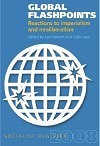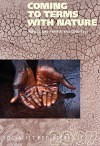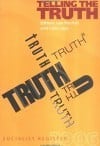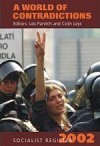
Given the extent and extremity of violence today, even in the absence of world war, and two decades after the end of actually-existing socialism, it is hard not feel that we are living in another age of barbarism. The scale and pervasiveness of violence today calls urgently for serious analysis—from “the war on terror” and counter-insurgencies, from terror and counter-terror, suicide bombings and torture, civil wars and anarchy, entailing human tragedies on a scale comparable to those of the two world wars, not to mention urban gang warfare, or the persistence of chronic violence against women. That the nirvana of global capitalism finds millions of people once again just “wishing (a) not to be killed, (b) for a good warm coat” (as Stendhal is said to have put it in a different era) is, when fully contemplated, appalling. | more…

Since 1964, the Socialist Register has brought together leading writers on the left to investigate aspects of a common theme. Global Flashpoints: Reactions to Imperialism and Neoliberalism examines the distinguishing features of neoliberalism today as well as the prospects for the left in the Islamic world, in Latin America, and in the capitalist North. | more…

Since 1964, the Socialist Register has brought together leading writers on the left to investigate aspects of a common theme. Coming to Terms with Nature: Socialist Register 2007 examines whether capitalism can come to terms with today’s ecological challenges and whether socialist thought has developed sufficiently to help us do so. Topics include: the ecological contradictions of capitalist accumulation and the growing social conflicts they create; the relationship between imperialism, markets, oil politics, and renewable energy; the significance of the impasse over the Kyoto protocol; and how technology can overcome the “limits to growth” and yet preserve the biosphere. | more…
The War on Terrorism and the Antiglobalization Movement
September 11, it is said, has changed everything. However true or not this may be—and I tend to think that it is not very true at all—one thing it certainly should have changed is the loose manner in which the adjective “violent” has been appended to recent antiglobalization protests. Especially for a conference such as this one—conceived in the wake of the Québec City events of last year and designed to shed light on the nature of the challenge posed to capitalist democracies by the new antiglobalization movement—the horrific and deadly terrorist attack on New York and Washington, D.C., and the scale of state violence unleashed—literally from on high—by the war on terrorism, certainly put this loose usage in stark perspective | more…

Does it make any sense to speak in terms of socialist renewal at the beginning of the twenty-first century? The massive anti-capitalist protests from Seattle to Prague to Quebec that captured the world’s attention at the beginning of the new millennium attest to the fact that the spirit of revolution, one of the central facets of political life over the previous centuries, is hardly a thing of the past. If “the revolutionary spirit of the last centuries, that is, the eagerness to liberate and to build a new house where freedom can dwell, [which] is unprecedented and unequaled in all prior history” properly begins with the bourgeois revolutions of the late eighteenth century, few would dispute that this eagerness for fundamental social transformation was in very large part carried into the world of the twentieth century by socialism’s revolutionary aspirations to transcend the capitalist order itself. | more…

Since 1964, the Socialist Register has brought together leading writers on the left to investigate aspects of a common theme. Telling the Truth: Socialist Register 2006 examines how contemporary social and political debate is structured, how ideas and ideologies come to inform policy making, research, education, and our conceptions of truth more generally. | more…

Since 1964, the Socialist Register has brought together leading writers on the left to investigate aspects of a common theme. This volume examines the new U.S.-led imperialist project that is currently transforming the global order, its impact on different regions of the world, and on gender, media, and popular culture. | more…
In the early summer of 1999, libertarian John Stossel from ABC Television interviewed me at length on my views of unemployment and inequality in Europe and the United States. In the end, only a tiny video bite aired. In it, I stated that I did think Europeans might learn something from recent U.S. experience. Stossel portrayed this as a conversion to his own free-market views. It was a gross misinterpretation of the views I actually hold, as was quickly pointed out by the advocacy group FAIR, and eventually also in a story on Stossel by Brill’s Content early this year | more…
Utopian Vision and Working-Class Capacities
“A continental welfare state, modeled on the comparatively successfulsocial democracy of the United States. That’s the ticket. Do it the American way.” This recipe for what path Europe should follow isn’t the Economist calling for a new realism, or the voice of American imperialism talking through the Wall Street Journal, or even a stolen quote from a member of Tony Blair’s cabinet caught in private conversation. It’s the concluding lines of an article on an alternative for Europe published in the New Left Review, once the home and hope for a rejuvenation of creative Marxism | more…

For forty years, the annual Socialist Register has brought together leading writers on the left to investigate aspects of a common theme. Contributors to this volume consider what imperialism means in the new century by examining the U.S.-led imperialist project currently transforming relations of global power. | more…

Why do racial, religious, ethnic and national identities have such purchase on the lives of so many people, and why are they still at the center of so many major conflicts at the beginning of the twenty-first century? What form is racism taking amidst the inequalities, refugees and mass migrations of today’s global capitalism? How does the American state—as both the manager of the world capitalist order and as the embodiment of an all-too-often chauvinist national identity—fit into the picture of ‘Fighting Identities’? | more…
Social-Democratizing Global Capitalism?
There are two central developments that define our era. One of these is the historic failure of the socialist project of the mass working-class parties, both Communist and Social Democratic. The other is, of course, what has commonly come to be known as the “globalization” of capitalism. These two developments are certainly related to one another, but they cannot be reduced to one another. Each also has its own specific dynamics which need to be analysed separately | more…

Radical politics have been defined in modern times—and distinguished from earlier traditions of protest—by the idea that economic, social and political structures are contradictory. Systems of exploitation creates not only wealth and prosperity for the powerful, but at the same time bring into being the forces which ensure their own eventual downfall. But it is a large step from the general assertion that social forms contain their own contradictions to analysis of the specific contradictions which occur in a given historical context, their interaction and movement, and their possible historical outcomes. | more…








